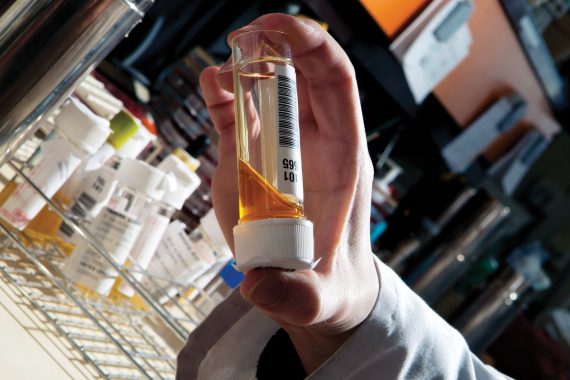GPs should not perform urine dipstick in over 65s with suspected UTI, says PHE

Public Health England has published new guidance advising GPs they should stop performing urine dipsticks in patients over 65 years old with a suspected UTI.
The new guidance comes as part of a quick reference guide for primary care that is currently under consultation and aims to ‘minimise the emergence of antibiotic resistance in the community’.
GPs welcomed the guidance, saying that the recommendation will cut the number of urine specimens taken ‘without good reason’ that they receive from care and nursing homes.
The guide includes diagnosis flowcharts for patients under and over 65 years old, including children under 16 years.
For those over 65 with a suspected UTI, PHE has said: ‘Do not perform urine dipstick…up to half of older adults will have bacteria present in the bladder/urine (asymptomatic bacteriuria) and positive dipstick without an infection. This is not harmful and does not require treatment with antibiotics.’
The draft guidance, which outlined the studies used to create the recommendations, added that although ‘dipsticks can moderately improve diagnostic precision, they are poor at ruling out infection’.
BMA GP Committee clinical and prescribing policy lead Dr Andrew Green said: ‘We would fully support this, GPs are often inundated with urine specimens from care and nursing homes taken without good reason, and the dipping of a urine specimen should be looked upon as in investigation with potential harms, and only performed in specific circumstances.
‘Also, every elderly patient discharged from hospital seems to have a UTI diagnosis, they don’t, they usually have asymptomatic carriage.’
PHE’s head of primary care unit Professor Cliodna McNulty explained: ‘Our draft guidance for diagnosing urinary tract infections (UTIs) aims to provide a simple toolkit for GPs to effectively treat UTIs, while minimising antibiotic resistance in the community…
‘Alongside limiting the emergence of antibiotic resistance, these guidelines may ease laboratory workload, with possible positive financial implications for both laboratories and primary care commissioners.’
The consultation on the draft guidelines will be open for feedback until 30 May 2018.
These recommendations come after NICE urged GPs earlier this month to counsel patients on effective self-care and consider delayed prescriptions for UTIs in an effort to reduce the risk of antibiotic resistance.
It also forms part of a larger push to reduce the number of antibiotic prescriptions, which saw nearly 9,000 GPs receive personalised letters telling them that they are overprescribing antibiotics.
Pulse July survey
Take our July 2025 survey to potentially win £1.000 worth of tokens

Visit Pulse Reference for details on 140 symptoms, including easily searchable symptoms and categories, offering you a free platform to check symptoms and receive potential diagnoses during consultations.












